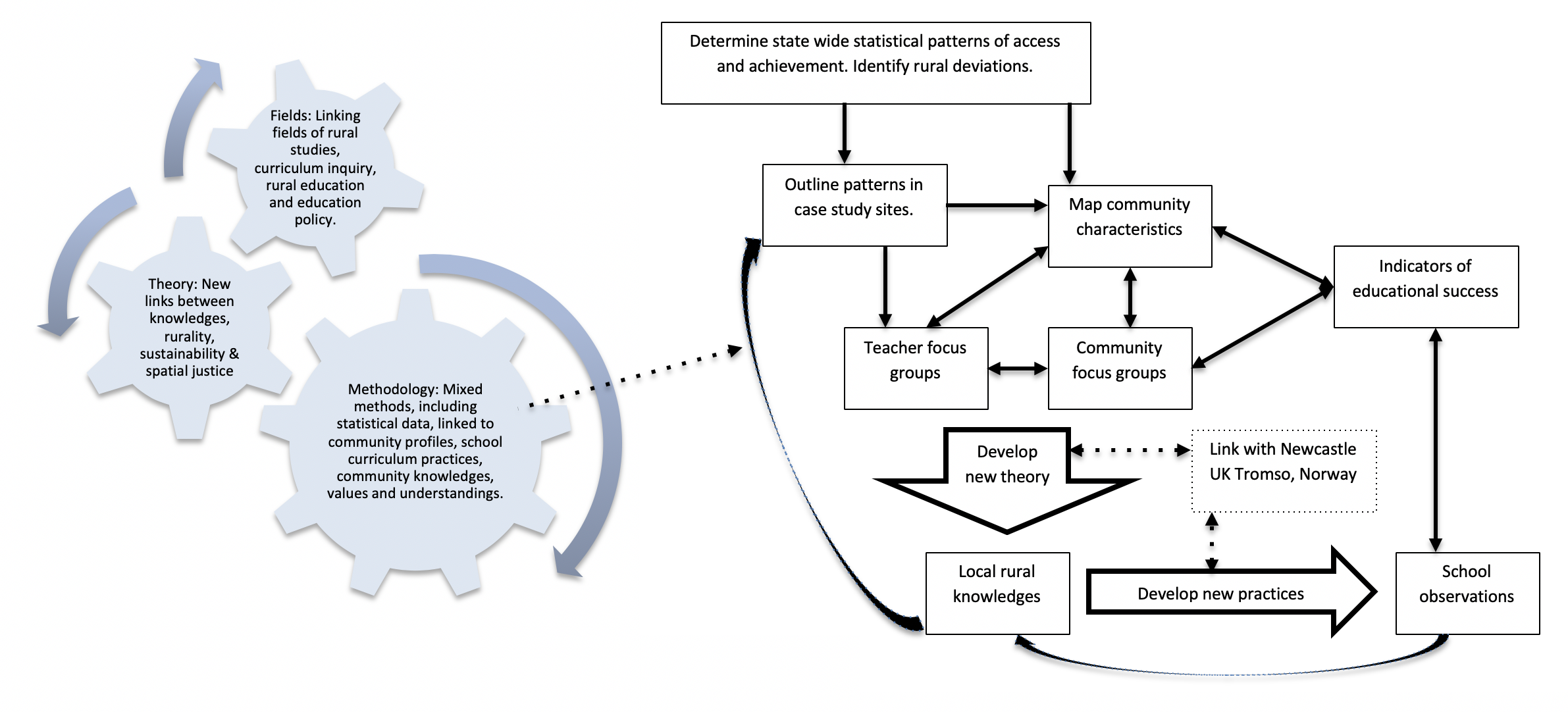Engaging Rural Knowledges for Sustainable Futures: Spatial Justice and Rural Schooling
Chief Investigator: Associate Professor Philip Roberts
Post Doctoral Fellow: Dr Jenny Dean
Timeline: ARC DECRA 2020-2022
Overview:
In contemporary society rural, regional and remote (RRR) students, and their communities, are often described as ‘disadvantaged’. This ‘disadvantage’ has long been a wicked problem in Australian education and social policy. Initiatives such as the ‘Gonski’ policies bring a focus to the redistribution of resources to rural schools in order to help redress this recognised disadvantage. In this research program we explore the processes of schooling (specifically curriculum access and the measurement of achievement) that such redistribution supports, in order to ascertain underlying patterns and better target strategies and interventions. Drawing on rural social theory, the processes of schooling – especially what is studied and how achievement is measured – are seen as metro-centric. That is, they are based on values of the metropole and are imposed upon non-metropolitan communities in a form of injustice based on their geographic or spatial location.
Understanding how knowledge in/of/for the rural is engaged with in contemporary (Australian) education is critical to changing the way in which rural disadvantage is constructed and experienced and the achievement of spatial justice. From this position, the program examines existing data on educational access and achievement, constructs alternative measures of educational success, recognises and engages with rural knowledges in the classroom, and engages a community perspective to develop a novel mixed-method program of rural-focussed research in order to reframe rural educational dis-advantage. As a complex and significant undertaking, it is designed to articulate into two major international research programs, and lead into transnational comparative studies of rural schooling of global significance. It also brings together the disparate academic fields of rural education, curriculum inquiry and rural studies.

The research program aims to:
- outline the spatial dimensions of educational access and achievement;
- identify forms of rural knowledges, and explore avenues for their inclusion in Australian education; and
- identify dimensions of rural school success as understood by rural communities and expressed in their own terms.
The anticipated outcomes of Engaging Rural Knowledges for Sustainable Futures include:
- the development of new methods for constructing research knowledges in rural communities and schools;
- the development of new theoretical tools for expanding our understanding of, and engagement with, rural knowledges;
- the development of new tools for understanding rural school ‘success’;
- the identification of approaches to engaging the rural sector in new knowledge transfers to enhance productivity and equity; and
- ideas for future curriculum reform.
This iterative program of study has four interlinking strands – conceptually, a helix structure:
- Administrative data analysis.
- The identification and application of community-developed indicators of educational ‘success’.
- The surfacing and valuing of community and school identified rural knowledges.
- School case studies.

